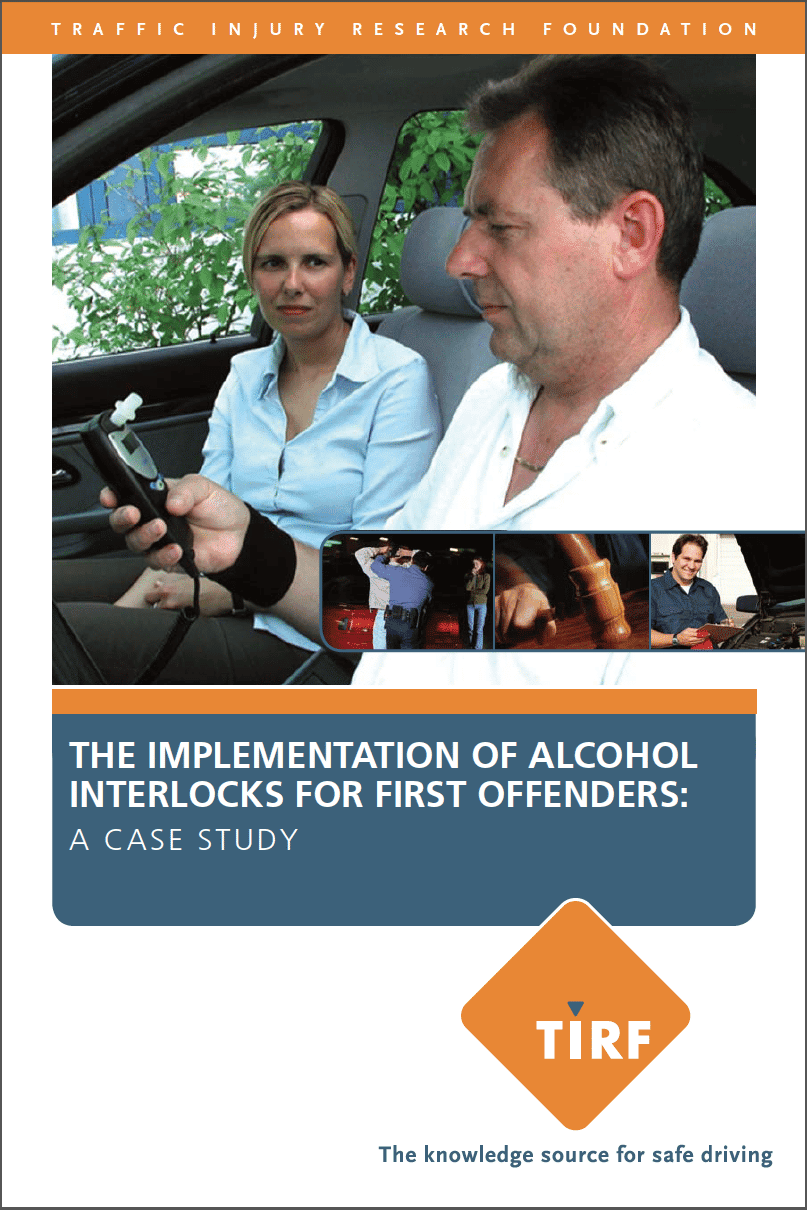Case Study on Alcohol Interlocks for First Time Offenders
The Implementation of Alcohol Interlocks for First Offenders: A Case Study
In many states, alcohol ignition interlock program participation was mandatory for repeat or high BAC offenders (those with a BAC of .15 or higher). In recent years, there has been a trend toward mandatory participation for all offenders, including first offenders.
In order to learn from those states that have already implemented a first offender alcohol interlock law, the Traffic Injury Research Foundation (TIRF) was contracted by Responsibility.org to conduct a case study to examine the experience of Illinois and compare it to the experiences of four other jurisdictions. The purpose of this case study was to gain insight into how legislation is translated into operational practices, and to provide guidance to other jurisdictions using the knowledge that has been gained to inform decision-making.
The report summarizes research relevant to the use of alcohol interlocks for first offenders. It also documents the process employed by and the tasks completed in Illinois to implement their first offender alcohol interlock law. The report contains an overview of the resources that were allocated to the process and compares the results in Illinois with experiences in Colorado, Nebraska, New York, and Washington, representing the diverse nature of alcohol interlock programs. Recommendations to assist other jurisdictions are formulated and discussed.
Access a copy of the full report or the executive summary.

